Established as an independent unit within the Maryland Technology Development Corporation (TEDCO), the Commission will establish criteria, standards, and requirements to ensure that stem cell research financed by the newly established Maryland Stem Cell Research Fund complies with state law.

Rachel Brewster, Ph.D. - Chair
Associate Professor; Biological Sciences University of Maryland, Baltimore County

Scott Bailey, Ph.D. - Vice Chair
Associate Professor; Biochemistry and Molecular Biology, Johns Hopkins Bloomberg School of Public Health; Johns Hopkins School of Medicine
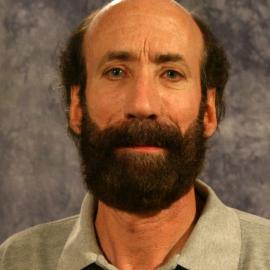
Ira Schwartz, Esq.
General Counsel, MD Technology Development Corporation

Mary Armanios, M.D.
Professor of Oncology and Genetic Medicine; Director, Telomere Center at Johns Hopkins; Associate Director for Education and Training, Sidney Kimmel Comprehensive Cancer Center at Johns Hopkins
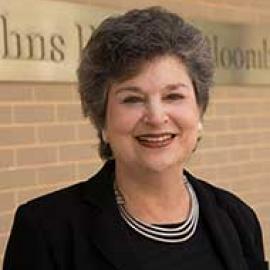
Margaret Conn Himelfarb, MPH
Health Advisory Board and Institutional Review Board; Johns Hopkins Bloomberg School of Public Health; Embryonic Stem Cell Research Oversight Committee, Johns Hopkins School of Medicine

Mamta Gautam-Basak, Ph.D.
Senior Director, Regulatory Affairs CMC, BridgeBio

Diane Hoffmann, M.S., J.D.
Professor of Law, Director Law & Health Care Program, University of Maryland School of Law

Debra Mathews, Ph.D., MA
Assistant Director for Science Programs, Johns Hopkins Berman Institute of Bioethics; Associate Professor, Dept. of Pediatrics, Johns Hopkins School of Medicine
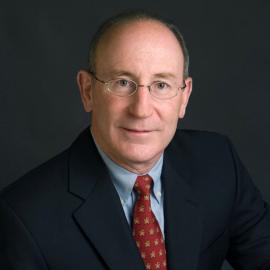
David Mosser, Ph.D.
Department of Cell Biology and Molecular Genetics, University of Maryland, College Park

Barbara Nsiah, Ph.D.
Director, Scientific Affairs; Avita Medical

Linda Powers, J.D.
Managing Director of Toucan Capital, Early & Active Supporter of Biotech Companies
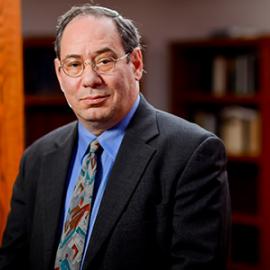
Rabbi Avram Reisner, Ph.D.
Rabbi of Congregation Chevrei Tzedek, Baltimore, Maryland
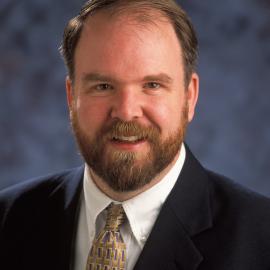
Curtis Van Tassell, Ph.D.
Research Geneticist

Vacant
(appointed by the Governor)

Vacant
(appointed by the Speaker of the House)
The Maryland Stem Cell Research Commission (commission) will hold regular meetings at least twice a year, these meetings are open to the public and media. For past meeting minutes, visit
TEDCOmd.com
Adopted by the Commission on March 7, 2007.
- Purpose and Scope
The Maryland Stem Cell Research Commission seeks to ensure that its decision making about applications for financial assistance is fair and objective, and is seen to be so. These guidelines, which incorporate both requirements of the Maryland Public Ethics Law and prudential considerations beyond the Ethics Law, identify the grounds for recusal of Commission members. The guidelines are not intended as a complete digest of members' obligations under the Ethics Law. Members must comply with all applicable provisions of the Ethics Law, including those unrelated to recusal.
- Disclosure and Recusal
A member whose recusal is required shall announce on the record, prior to consideration of an application, that he or she is recused and shall leave the room during the entire period of discussion and voting about the application. A member need not state the reason for the recusal. If, however, the recusal of a member would result in the loss of a quorum and so make Commission action impossible, the member may participate after he or she discloses on the record the circumstances that would otherwise lead to recusal.
- Economic Interests
Recusal is required if a member or a qualifying relative (defined in the Ethics Law as a spouse, parent, child, or sibling) has an "interest" in any applicant, as that term is defined in § 15-102(t) of the Ethics Law.
- Employment
Recusal is required if a member or a qualifying relative (defined in the Ethics Law as a spouse, parent, child, or sibling) is employed by, or is negotiating employment with, an organizational applicant or by an organization that employs any individual applicant.
- Professional Relationships
Recusal is required if a member has been a student, supervisor, or collaborator of an applicant, or has co-authored a publication with an applicant, within the last three years. 2 Disclosure is required if a member has had a material scientific or ethical disagreement with an applicant.
- Other
Recusal is required if a reasonable person would conclude that, because of a personal relationship with an applicant, a personal disagreement with an applicant, or another reason not elsewhere described in these guidelines, a member cannot provide a fair and objective review of an application.
Adopted by the Commission on March 3, 2007.
- Creation and Purpose
The Maryland Stem Cell Research Commission ("Commission") is established in accordance with the Maryland Stem Cell Research Act of 2006 ("the Act"), codified as Article 83A, Title 5, Subtitle 2B of the Annotated Code of Maryland. The Commission is an independent public body that functions in conjunction with the Maryland Technology Development Corporation ("the Corporation"). The Commission's principal purpose is to solicit, review, accept, and reject applications for State-funded stem cell research through a scientifically and ethically sound process.
- Business Address
The Commission's business address is as follows: Maryland Stem Cell Research Commission, c/o Maryland Technology Development Corporation, 7021 Columbia Gateway Drive, Suite 200, Columbia, Maryland 21046.
- Membership
A. Appointment. The Commission comprises the Attorney General of Maryland or the Attorney General's designee, serving ex officio, and 14 members appointed in accordance with the Act.
B. Duties/expectations. Members shall complete tasks assigned by the Chairperson and carry out assignments in committees to which they have been appointed. Members are expected to be knowledgeable about the matters within the Commission's responsibility and to assist one another collegially in carrying out the Commission's work.
C. Protection against liability. Members are "State personnel" entitled to the immunity and other provisions of the Maryland Tort Claims Act
- Meetings, Records, and Administrative Matters
A. Open Meetings Act. The Commission is a public body subject to the Maryland Open Meetings Act. Except as authorized by the Open Meetings Act, Commission meetings shall be open to the public.
B. Scheduling meetings. The Commission shall meet at least twice a year and may meet more frequently as needed to carry out its duties. The Commission shall meet at the call of the Chairperson, after consultation with members about their availability. Notice of each meeting shall be given as required by the Open Meetings Act.
C. Place of meetings. Commission meetings shall be held at a place to be determined by the Chairperson based on the availability of a suitable site, if feasible in the Baltimore metropolitan area.
D. Attendance. Members may attend a meeting either in person or electronically by conference call, so long as those physically present and on the telephone can both hear and speak with one another. A member who participates by conference call shall be deemed for all purposes to be present at the meeting.
E. Quorum. The presence of eight members, a majority of the Commission's membership, constitutes a quorum for the transaction of all business at meetings.
F. Decision-making procedures. Except as provided in Section 7 of these Bylaws, each Commission member is entitled to one vote on all issues presented at meetings at which the member is present. A majority vote of the members present is sufficient to constitute action by the Commission. The presentation of, and discussion about, motions and other items of business shall be conducted in accordance with customary parliamentary procedures for small boards, as reflected in the applicable portions of Robert's Rules of Order Newly Revised.
G. Minutes. Minutes of each Commission meeting shall include the identification of the members present and a summary account of motions and other items of business, the discussion of them, and their disposition. Except for unavoidable delay occasioned by good cause, draft minutes from the prior meeting shall be distributed to the membership at least one week prior to the next ensuing meeting.
H. Records. The records of the Commission shall be maintained and preserved in accordance with law by the Corporation.
I. Administrative matters. The Corporation is the administrative agent of the Commission and, on the Commission's behalf, shall assist the Commission in the scheduling of meetings, preparation of meeting minutes, dissemination of information to Commission members and to the general public, and other administrative matters.
- Officers
A. Chairperson and Vice Chairperson. The members of the Commission shall elect a Chairperson and a Vice Chairperson from among the appointed members of the Commission. The Chairperson and Vice Chairperson shall each serve for a term of two years and are eligible for re-election. A vacancy in the office of Chairperson or Vice Chairperson shall be filled by election of the members. A member elected to fill a vacancy in the office of Chairperson or Vice Chairperson shall serve the remaining portion of the term and is eligible for re-election.
B. Chairperson's responsibilities. The Chairperson shall act as leader of a convened meeting and as the parliamentarian. The Chairperson is the official representative of the Commission and shall be the spokesperson to the news media. The Chairperson may sign documents on behalf of the Commission.
C. Vice Chairperson's responsibilities. In the event that the Chairperson is temporarily unable to carry out one or more of the responsibilities described in these Bylaws, the Vice Chairperson shall carry out those responsibilities until the Chairperson is able to resume doing so.
- Committees
The Chairperson may appoint members to such committees as the Chairperson deems necessary for the efficient conduct of the Commission's duties. All committees shall report their findings or recommendations to the Commission, which retains final decision-making authority.
- Conflict of Interest
A. Disclosure. In accordance with § 5-2B-04(j) of the Act, Commission members shall disclose to the State Ethics Commission any employment by, or a financial interest in, an entity that may apply to conduct State-funded stem cell research. In addition, a member shall make such disclosures as are required under the Commission's Guidelines on Disclosure and Recusal, pursuant to § 5-2B-07(a)(11) of the Act.
B. Recusal. A member may not participate in a committee's or the Commission's discussion of, or action on, an application for State-funded stem cell research if participation is prohibited by the Maryland Public Ethics Law or the Commission's Guidelines on Disclosure and Recusal.
- Amendment to Bylaws
These Bylaws may be amended by action of the Commission, after consultation with the Executive Director of the Corporation.
ADOPTED BY the Commission, this 3rd day of March, 2008.
